
A lot of people are trying to fit themselves into a mold that has already been set. It doesn’t have to be like that. If you find something that inspires you, you can just follow that and see where it can lead you. You can lead a life that sustains you in both an emotional and financial sense.
1. What led you to the mission of developing and manufacturing musical instruments?
I was looking for a kind of work that I could do out of my home or my own shop. I went to a week long music improv class taught by Paul Winter. He is a world musician. He had this big xylophone made 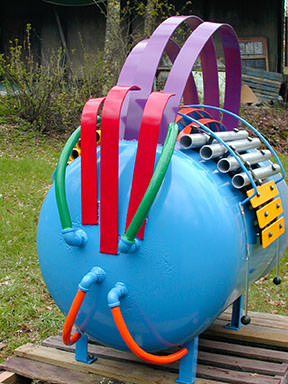 out of spruce 2 x 6’s. Me and this other guy started playing on it. We played on it off and on during the week. We both really liked it and so he came over to my place after the workshop was over and we built one together.
out of spruce 2 x 6’s. Me and this other guy started playing on it. We played on it off and on during the week. We both really liked it and so he came over to my place after the workshop was over and we built one together.
That was fun so I decided to build several more and played with the design. I changed the design a bit and thought, “I wonder if I could sell these?” I went to a dance camp where you could sell crafts and things. I brought the instrument with me and I sold them all. I said, “Well, this will work!” So I started making musical instruments for a living. (To see a video about Jim Doble’s mission click here.)
2. What does this mission mean to you?
Most of the instruments I sell go to playgrounds and children’s museums, but I do make instruments for all levels of playing. I would say that right now about ninety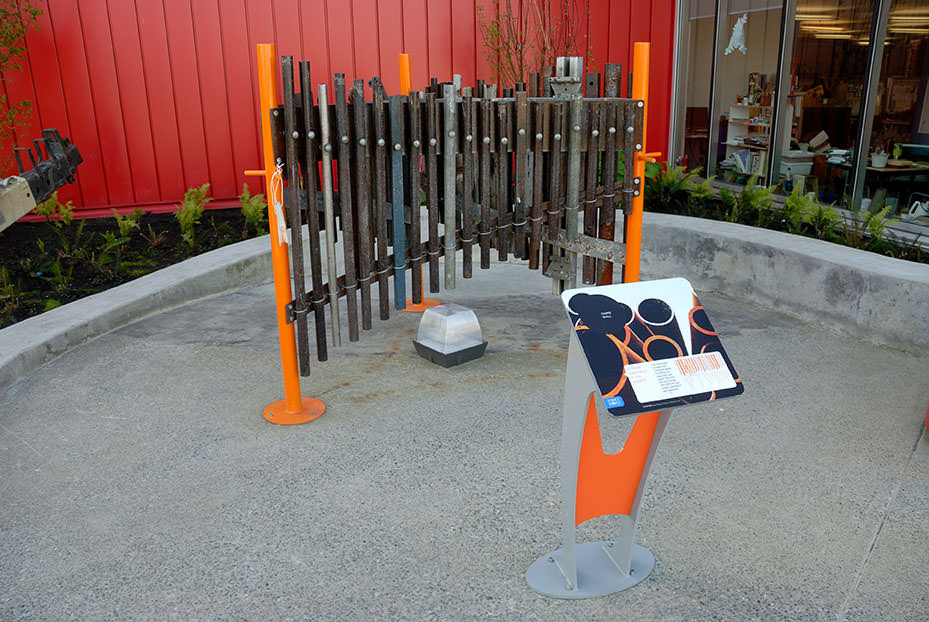 percent of my business is playgrounds. The kick I get out of that is that there is going to be thousands and thousands of visitors playing on my stuff. That helps keep me going on days when I think, “I should be doing something else!” It’s kind of neat!
percent of my business is playgrounds. The kick I get out of that is that there is going to be thousands and thousands of visitors playing on my stuff. That helps keep me going on days when I think, “I should be doing something else!” It’s kind of neat!
The stuff that I’m making for playgrounds inspires creativity and play. Kids can not only make music on playgrounds, but they can play a different kind of music and rethink music and musicality.
The part that gives me the most joy in my work is creating new stuff – coming up with a different design, 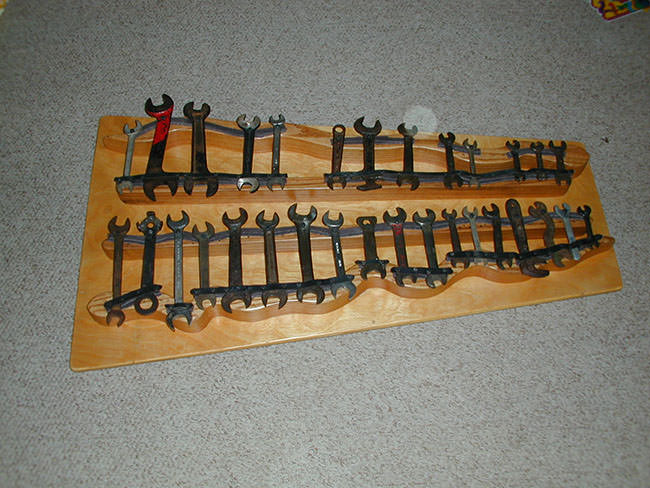 getting a new sound out of a material that is uncommon or underused. Creating is great, but that is only a small percentage of my work. Most of my work is that I actually have to do the work and make stuff. It’s, “I’ve got to sand today” or “I have to assemble stuff.” The work isn’t necessarily fun, but when all is said and done, you have the finished product that people are going to love and enjoy.
getting a new sound out of a material that is uncommon or underused. Creating is great, but that is only a small percentage of my work. Most of my work is that I actually have to do the work and make stuff. It’s, “I’ve got to sand today” or “I have to assemble stuff.” The work isn’t necessarily fun, but when all is said and done, you have the finished product that people are going to love and enjoy.
If I can keep that in my head, it helps me finish the drudgery kind of work. It’s not all fun, but I keep my perspective or an overview of my work and how it is going to be received and used. This helps me keep a very positive attitude about my work.
3. What was your best day developing and manufacturing musical instruments?
There was an art festival in Maine where I used to bring a collection  of very large musical instruments. I would set the instruments up off in a corner of the festival. People would come along and play them. Every once in a while you would get a group who would actually listen to each other and play together. They would have a really amazing jam session.
of very large musical instruments. I would set the instruments up off in a corner of the festival. People would come along and play them. Every once in a while you would get a group who would actually listen to each other and play together. They would have a really amazing jam session.
Those moments at that festival were the best. It involved not just being over here making stuff and sending them off. It was much more social. I was getting to be with the people who actually play with my instruments. That was fun.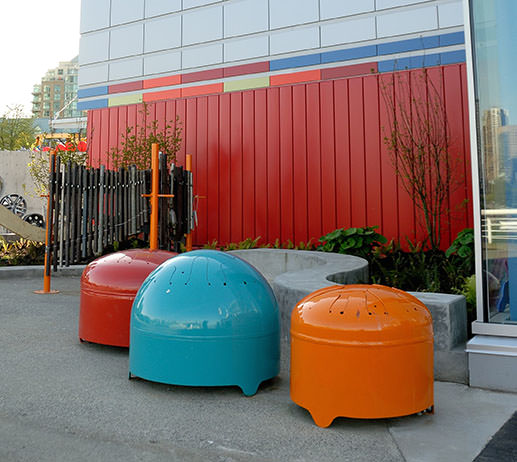
The whale drum is one of my standard instruments. It’s one of my most popular sellers. When I first started making instruments, I put them out there at a craft show. A deaf person came up. I didn’t realize he was deaf. I started playing and he got all excited. That was a “wow” moment because the vibration was so vibrant that he could feel them and it gave him a tactile experience. That was cool.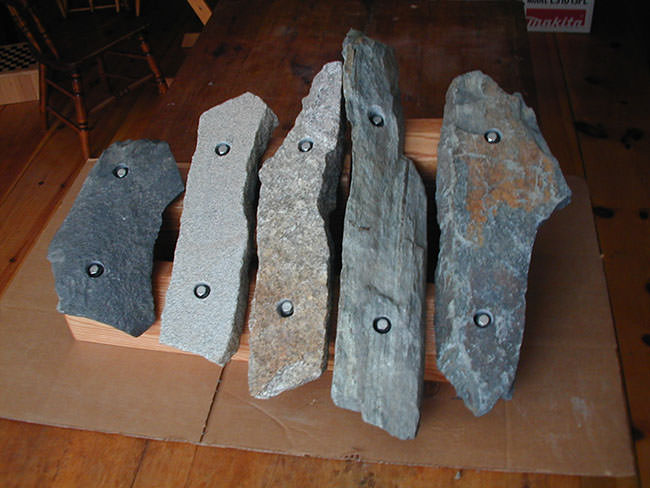
I have a love of my stone instruments as well. There is something about the vibrations of stone that can be extraordinary. I can sit by myself and play the instrument for a long time — noodling around. I think I got that word from Paul Winter. (To see pictures of others noodling with Paul Winter click here.)
4. What was your worst day developing and manufacturing musical instruments?
The worst day is when I have deadlines I’m behind on, tools break, or the person I hired to help me doesn’t show up. This is the high stress days when there is a time pressure and everything seems to be going wrong. There’s been a few of those.
5. How did you survive your worst day?
When I have those days and everything has been just awful, the best thing about those days is at some point I will just sort of shrug my 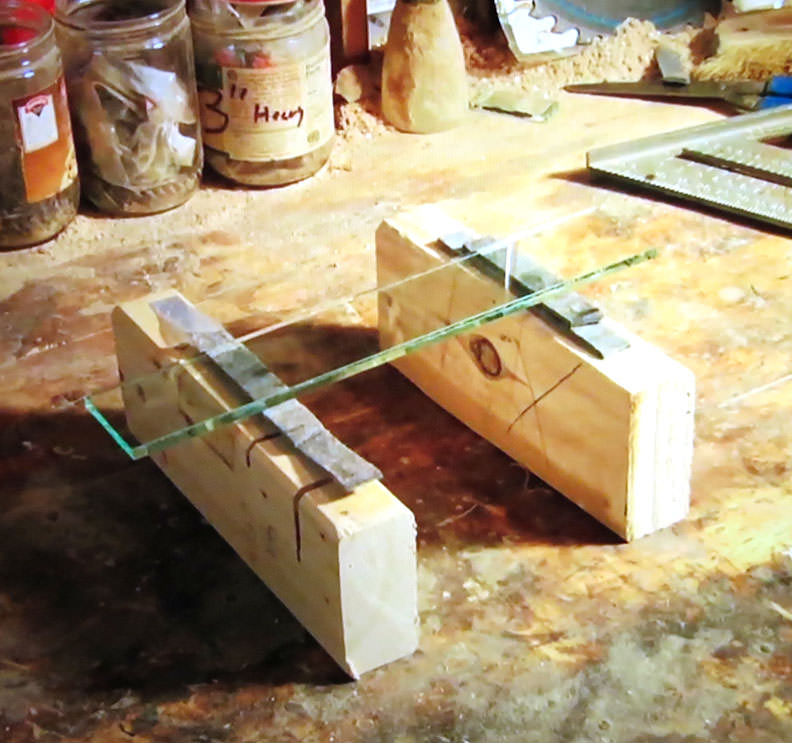 shoulders and say, “OK, those things are going to happen when they happen and it’s all going to be fine.” I just let go of the stress and then it feels fine. These things can have a silver lining to them.
shoulders and say, “OK, those things are going to happen when they happen and it’s all going to be fine.” I just let go of the stress and then it feels fine. These things can have a silver lining to them.
I eventually come to a point where I realize it is not worth stressing out about all this and life will go on – if I am a couple of days late sending something off or if something is not as timely as it should be or something is not as perfect as it ought to be. It’s OK. It’s all going to be fine. Life will go 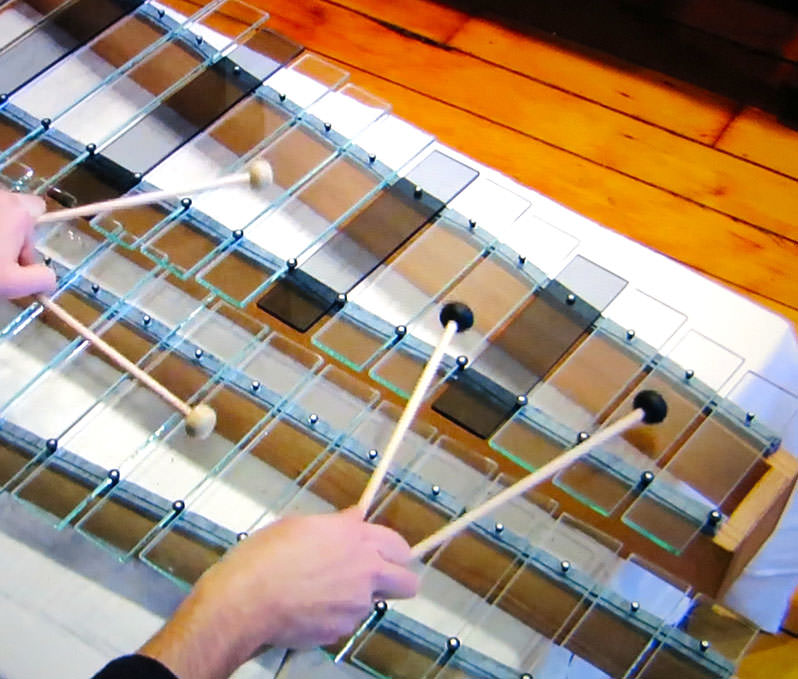 on. I realize I don’t have to get sucked under by all the stress. This takes a huge weight off my shoulders.
on. I realize I don’t have to get sucked under by all the stress. This takes a huge weight off my shoulders.
A lot of people are trying to fit themselves into a career oriented mold that has already been set like a car mechanic or engineer or doctor – or whatever. They try to see themselves fitting into a certain mold. It doesn’t have to be like that. If you find something that inspires you, you can just follow that and see where it can lead you. You can lead a life that sustains you in both an emotional and financial sense.
- « Previous person: Sidney Pugh
- » Next person: Mimi Bornstein